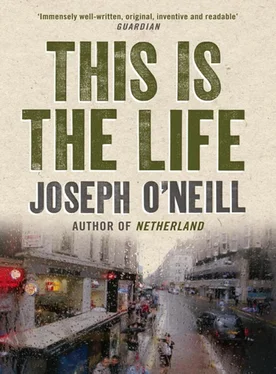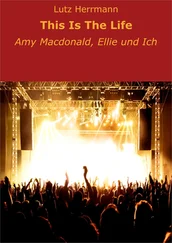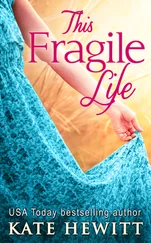I call my second witness. A rumble goes around the courtroom when he takes the stand, because he bears an uncanny resemblance to myself. Were it not for the fact that he is slimmer and more prosperous-looking, he would be my spitting image.
Could you give the court your name and occupation?
Certainly. James Jones, barrister.
Could you tell us something about your practice, Mr Jones?
I am a successful international lawyer based at 6 Essex Court. It will not be long before I apply for silk.
I see; and could you reveal your earnings to the court?
Yes: £180,000 per annum.
And could you describe to the court your room in chambers?
I work in a large room overlooking a Middle Temple courtyard. The walls are decorated with beautiful old paintings of horses and some interesting items from my collection of contemporary art.
What about your desk?
My desk? Well, it is a large Georgian walnut secretary.
Its cost?
Well, I don’t know; about £15,000, I should have thought.
Do you belong to any clubs, Mr Jones?
Only three; the Garrick, the Wig and Pen, the MCC.
Are you married, Mr Jones?
I am.
Do you have a photograph of your wife on your person?
Well, yes, as a matter of fact I do.
(He takes a snapshot of Mrs Jones out of his wallet and passes it to me. A gorgeous, raven-haired, soft-eyed woman is depicted. I raise the photograph for the jury’s inspection. After they have settled down I shuffle my papers and clear my throat for effect. Then I wait. I wait for absolute silence before I continue my questioning.) Mr Jones, do you actually exist?
No, I’m afraid to say I do not.
Then who, or what, are you?
I am the person you would have been had events taken a different course.
Let me see if I understand you, Mr Jones: you are the person I would have become had I been taken on by 6 Essex?
Correct.
I see. Mr Jones, the court will have noticed the difference, indeed the gulf, if I may describe it that way, between you and me — you are successful socially and professionally, you are blessed with a wonderful wife and so forth. I am none of these things. Can you be sure that, had I been taken on by 6 Essex, I would have gone on to become like you?
Yes. You undoubtedly possessed all the talent and determination necessary to succeed as a top commercial and international lawer. You were cut out for it, Mr Jones, you were meant to be me — Mr Jones, I am the real you.
Thank you, I have no further questions. Mr Donovan?
A flabbergasted Donovan shakes his head. No cross-examination.
Now it is for Donovan to present his evidence. He has only one witness: himself. He puts himself in the box and takes the oath.
He can say nothing. He stands there in silence, tongue-tied. Well, Mr Donovan? the judge asks. Aren’t you going to say anything?
Yes, I … says Donovan.
The judge raises an eyebrow. You are unable to speak, Mr Donovan?
Donovan says, Well, I … He stops again. Then, after a pause, he says, I have no evidence to give, my lord. I have nothing to say. He steps out of the box.
Just a moment, Mr Donovan, I say dramatically. Everybody looks at me: suddenly I am the centre of attention. You forget, Mr Donovan: I have yet to cross-examine you.
What happens next does not bear transcription. I tear Donovan apart. I do a Donovan on him: I pin him to the ropes and sock him with body-blow after body-blow. I cut him and outpoint him, I mash him in and knock him out: I Tyson him. The admissions come spilling out: Yes, it is my fault that you are not the James Jones you should be, the James Jones you were meant to be; yes, I take the blame for what you are presently suffering, I should have put chambers in touch with you in November 1978; yes, I have acted in a selfish and uncaring way towards you. I have been cruel, I admit it. I have ruined your life.
I let Donovan go. He is in pieces, and reels dizzily to his seat. I stand to address the jury.
You have just heard the Defendant, Mr Donovan, admit liability in this matter. There remains only one thing for you to deal with: the quantum of damages. Members of the jury, I want compensation for dismemberment, for that is what we are talking about here. This may sound heartless to those who have lost real legs, but I, too, feel as though something has been chopped off. I am attacked by impalpable pains in regions I cannot locate, pains like the pains amputees are said to feel in the thin air their hands once would have occupied. Members of the jury, let me make plain what I am saying. Let me explain what has been sundered from me.
Before Donovan came along (and it must never be forgotten that he was the one who entered my life, that he made the first move), I lived happily from day to day. I had no regrets, and if I looked forward at all, members of the jury, it was to more of the same. I was at peace with myself.
Then he showed up — Mr Donovan, the man you see sitting over there. It was not me he wanted, it was a solicitor — a solicitor he could manipulate and dominate. He did not care about the effect he might have on me, the disturbance he might cause by suddenly reappearing in my life. And what was the effect of his come-back? I will tell you. He dug up my old future. Not my recent future, ladies and gentlemen — not the times awaiting me at Batstone Buckley Williams — but my old future, the one I looked forward to as a young man: the James Jones, international lawyer, scenario. And the hopes which this future contained, hopes which until then were safely underground, suddenly came to light again, more vivid than ever.
These hopes were dashed, members of the jury. Of course they were; how could I, now, at this stage of my life, ever fulfil the desires of my youth? I did not have a hope of becoming an international lawyer or of writing a learned book, of taking part in the bright swirl of history: and yet I hoped. Because of Donovan, I hoped.
What do I mean, when I say that my hopes were dashed? Let me tell you: I mean that they were severed from me for good. Yes, severed, as though an axe had been put to them: because these kinds of dreams, these youthful skylines, they are connected bodily to you, members of the jury, they are hooked deep into your insides like anchors jammed in rocks: move the anchor and you move the rocks. And this upheaval, ladies and gentlemen, this rumbling of hearts and guts, is painful. Especially when, as in my case, it is unjust — I could have been, I should have been, an international lawyer and learned author. But I am neither of these. I have been deprived of what I had coming to me, a deprivation I can lay at the door of Mr Donovan. If the Defendant had not been so self-centred, he would have alerted his chambers to my whereabouts at Batstone Buckley Williams, and I would now be a different man with different horizons. But I am not. The old me-to-be, the man of my dreams — you heard him giving evidence earlier, members of the jury, the other Mr Jones — he and I have split up for ever. It is over between us, it is over between my real self and me — for there can be no doubt, members of the jury, that the person I now am, and the life I now lead, worthy as they might be, are not the real thing. The real life, lustrous and significant, has been lost to me, and that is as bad as losing a limb. Anyone who thinks that I am going too far is wrong. I would give my right arm for those vanished years, even now.
(I stop there to let the jury take in what I have been saying. I look over at Donovan. He is sitting silently, in a daze. I know what he is thinking; not, My, how selfish I have been, but, My God, James is good — really good — how stupid I was never to have spotted his talent when he was my pupil! I resume.)
Читать дальше
Конец ознакомительного отрывка
Купить книгу












